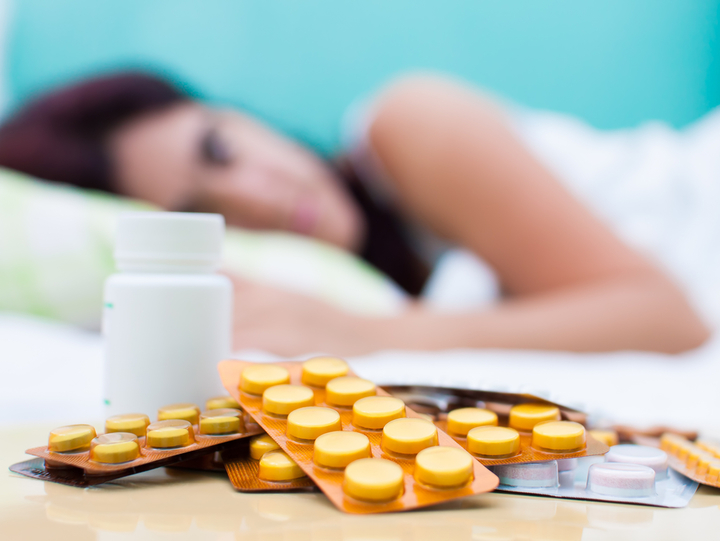
Opioid Rehab for Couples
If you and your partner are struggling with opioid addiction, it’s important to know that you are not alone. Addiction to these drugs is a serious problem that affects millions of people around the world.
Unfortunately, it can also have devastating effects on your relationship with your partner. But there is hope. You and your partner can beat addiction and mend your relationship with the proper care and assistance from opioid rehab programs.
What are Opioids?
These are a class of drugs that are commonly prescribed for pain relief. They work by binding to opioid receptors in the brain and spinal cord, which can help to reduce pain and produce feelings of pleasure and euphoria. Common examples include prescription painkillers like oxycodone and hydrocodone, as well as illegal drugs like heroin.
These drugs have a legitimate medical use and can be very effective for managing pain when used as directed by a healthcare professional. However, they can also be highly addictive. When they are taken in large amounts or used for non-medical purposes, they can cause a range of negative effects, including respiratory depression, which can be life-threatening.
Respiratory depression is a condition characterized by slow breathing. If the drugs cause your breathing to slow down by too much, your body might not get enough oxygen. In turn, this can become fatal. Respiratory depression merits immediate medical attention. It needs to be treated promptly to save your life.

How do these drugs become addictive?
Opioids can be highly addictive for a number of reasons. When they bind to opioid receptors in the brain, they can trigger the release of dopamine, a neurotransmitter that plays a key role in the brain’s reward and pleasure pathways. This can lead to a feeling of euphoria, which can be highly reinforcing and can make it difficult to stop using the drug.
Some people also get addicted because they increase their dose on their own. They do not tell their doctors first. Often, they feel as if the drugs have no effect anymore. With that, they try to take more of it to get the same effects as before.
Over time, the brain can become desensitized to the effects of these drugs, which can lead to tolerance. This means that higher doses of the drug are needed to achieve the same effect. As tolerance develops, the risk of dependence and addiction increases. At some point, your body will become so used to the drug that it becomes difficult to function normally without it.
If you try to quit the drugs at this point, it will be insurmountable without professional help.
What are the signs of an opioid addiction?
Opioid addiction can be difficult to detect, especially in the early stages. However, there are some common signs and symptoms that you can look out for, including:
- Using the drugs in larger amounts or for longer than prescribed
- Taking the drugs without a prescription
- Using the drugs to cope with emotional or psychological distress
- Neglecting responsibilities at work, school, or home due to drug use
- Continuing to use the drugs even if you know the negative effects on your relationship
- Withdrawing from social activities and relationships
- Experiencing withdrawal symptoms when attempting to quit or reduce use
How does addiction affect my relationship?
Opioid addiction can have a devastating effect on your relationship with your partner. The drug can cause a range of negative effects, including:
- Decreased intimacy and emotional connection
- Increased conflict and communication problems
- Financial strain due to the cost of drugs and related expenses
- Increased risk of domestic abuse and violence
- Risk of infectious disease transmission through injection drug use
The risk of respiratory depression is also a significant concern when using these drugs, especially when used in high doses or in combination with other drugs like alcohol or benzodiazepines. Respiratory depression can lead to a dangerous drop in oxygen levels, which can be life-threatening.
How can rehab help restore my relationship?
Opioid rehab can be an effective way to overcome addiction and restore your relationship with your partner. Rehab typically involves a combination of medication-assisted treatment, behavioral therapy, and support groups. Here are some ways that rehab can help:
- Medication-assisted treatment: Medications like methadone, buprenorphine, and naltrexone can help to reduce cravings and withdrawal symptoms, which can make it easier to quit opioids and stay sober.
- Behavioral therapy: Therapy can help you and your partner to identify and address the underlying issues that may be contributing to your addiction, such as trauma, stress, or mental health disorders. It can also help you to develop coping skills and strategies to manage cravings and avoid relapse.
- Support groups: Support groups like Narcotics Anonymous can provide a supportive community of peers who understand what you are going through and can offer encouragement and accountability.
In addition to helping you overcome addiction, opioid rehab can also help to restore your relationship with your partner. By working together in therapy and support groups, you can develop a stronger sense of trust and intimacy. You can also learn healthy communication skills and strategies for resolving conflicts in a constructive way.
Rehab can also help to address any financial or legal issues related to your addiction, which can relieve some of the stress and strain on your relationship. And, of course, rehab can help to reduce the risk of respiratory depression and other negative health consequences associated with opioid use.
The Bottom Line
If you and your partner are struggling with opioid addiction, it’s important to seek help as soon as possible. Opioid addiction can have a terrible impact on your relationship, but with the right care and assistance, you can beat your addiction and get your relationship back to where it should be, which is healthy and fulfilling.
Remember that opioid addiction is a medical condition, not a moral failing or a lack of willpower. It’s important to approach it with compassion and understanding, both for yourself and for your partner. With the right treatment, you can overcome addiction and build a brighter future together.
